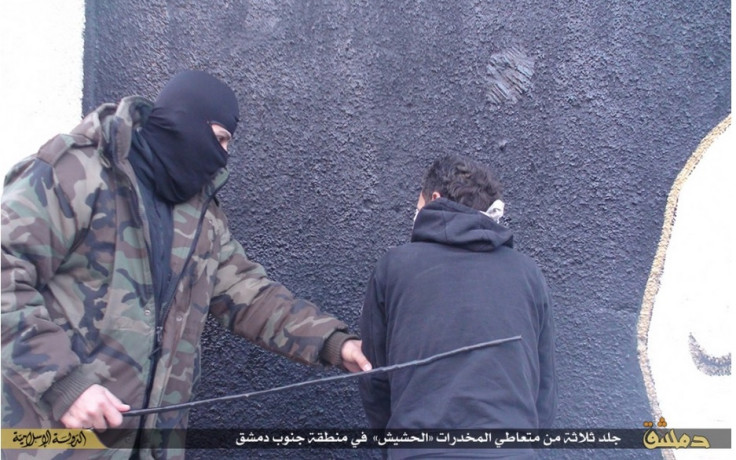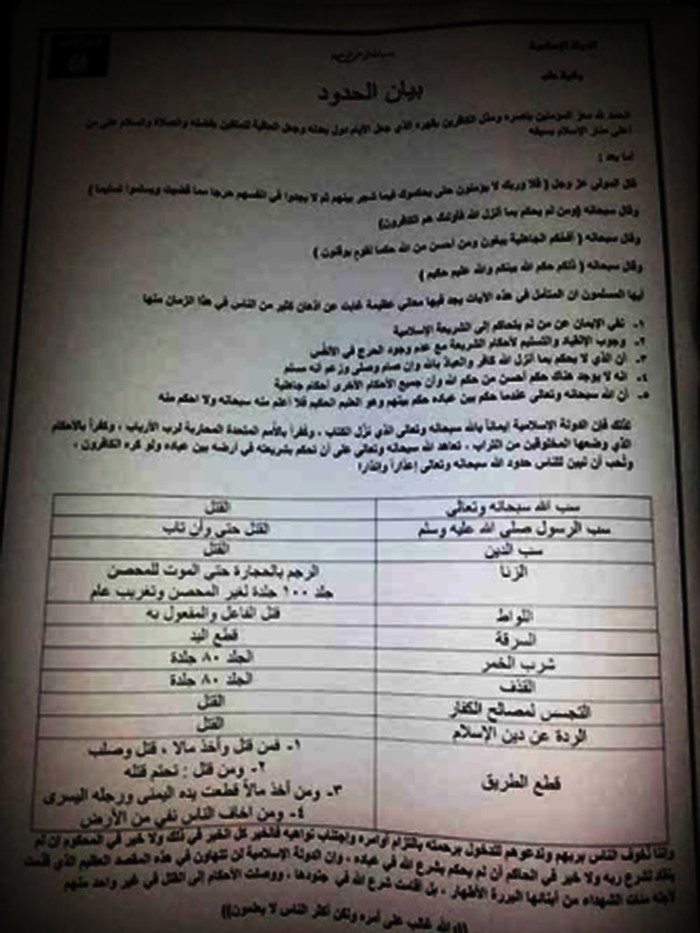Inside the Isis prison state: The brutal Islamic State penal code explained

Since its inception and emergence in Iraq, the Islamic State (Isis) has been forging its own penal code, based on what they describe as the core principles of the Islamic caliphate.
IS claims these laws are designed to inculcate true Islamic values and foster a society in the image of the Prophet Mohammed. But in fact the laws are intended to brutally reinforce IS's control through intimidation and oppression.
The militants have codified their penal system in a rudimentary circular, issued to local people. First on the list is the crime of "insulting God," which is punishable by execution, as are several other crimes.
In fact, capital punishment is mandatory for the crimes of "insulting the Prophet and insulting religion, "spying for the interests of the infidels", apostasy, and sodomy.
Adultery, meanwhile, is viewed as a serious crime, and those found guilty are stoned to death. Meanwhile, those found guilty of robbery have their right hand and left foot cut off, and anyone who is found guilty of intimidating the local population is thrown into exile. If only that punishment applied to the IS militants themselves.

The whip is another key instrument in IS's barbaric penal system. Anyone found guilty of defamation, or of drinking alcohol, is sentenced to 80 lashes, with sentences typically carried out in public.
Flogging is also imposed upon those found guilty of taking drugs, while those guilty of selling tobacco are likely to have their store closed - thereby ruining their livelihood.
IS has claimed that its penal code is founded on 'Islamic provisions, the law of God.' Yet, in reality, it contravenes the core tenets of Islam and offends Muslims from all walks of life, even other Islamist groups.
Abu Qatada, the Palestinian-Jordanian preacher who has been placed under worldwide embargo by the United Nations for his alleged affiliation with Al-Qaeda, has described IS leader Abu Bakr al-Baghdadi as "a prodigal liar". Indeed al-Qaeda and other Salafist groups remain vehemently opposed to IS, as demonstrated by the ongoing civil war in Syria.
Yet, for now, IS retains control of Raqqa - and is free to impose its gruesome 'justice' system on the people under its control.
© Copyright IBTimes 2025. All rights reserved.





















